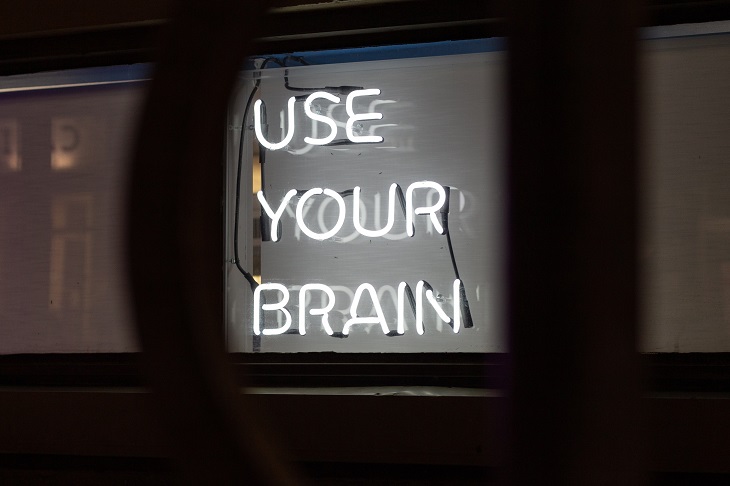THE DAILY DOSE
What Are Nootropics & Are They Safe?

The health of the brain is arguably the most important aspect of health in the human body. From being able to think, remember, and learn new things, to sending signals to the rest of the body to complete cellular processes, the brain is the machine that drives the body. There are certain things that can hinder how healthy the brain is, such as mental health disorders, kidney and liver problems, sleep issues, and lack of proper nutrients.
Cognition refers to how people experience, learn, and understand the world through their senses. Cognitive impairment can lead to trouble with memory, learning, concentration, and decision-making. Whether mild or severe, cognitive impairment can hinder daily life. There are some supplemental products on the market that are specifically designed to improve cognitive impairment – but what are they, do they work, and are they safe?
What are nootropics?
In the simplest terms, nootropics are drugs that are designed to enhance cognitive performance. Also referred to as “smart drugs”, they promise to improve how well a person performs when it comes to cognitive tasks. There are three specific types of nootropics: dietary supplements, synthetic compounds, and prescription drugs.
Typically, prescription nootropics are used to help those who have cognitive impairment due to a health condition. For example, those who have ADHD take stimulating nootropics such as Adderall or Ritalin, whereas those with Alzheimer’s will likely be prescribed a medication known as donepezil. These are designed to help restore some of the cognition that has been lost or misdirected. Dietary supplements and synthetic nootropics are most often used in generally healthy people who want to improve their brain power, so to speak.

What do nootropics do?
The well-known compounds that make up nootropics are said to have cognitive enhancing benefits. They work by encouraging a better level of mental function. Those who are looking to take nootropics will likely do so to help boost their memory, creativity, motivation, or attention span.
There are a few different mechanisms outlined in one particular research paper that explore the reasoning behind why nootropics are able to improve cognitive function. The first is glutaminergic signaling, which is a type of synaptic plasticity (the strengthening or weakening of synapses over time). It works on a neurotransmitter known as glutamate. Glutamate plays a vital role in cognitive processes, and when it is released, it can activate certain receptors that are used in learning and memory.
Another proposed mechanism is the manipulation of the cholinergic system. This is essentially a group of nerve cells that use the neurotransmitter acetylcholine. When this system is working, it can stimulate the release of glutamate, thus encouraging better cognitive function.
Dysfunction of this system in accompaniment of the amyloid protein has also been shown to be a driver of cognitive decline and health issues associated with reduced cognition, such as Alzheimer’s disease. Nootropics also play a role in influencing the amyloid protein, which leads to an increased performance when it comes to both learning and memory.
What products are considered to be nootropics?
There are many products (natural, synthetic, and prescribed) that could be considered a nootropic. The nootropics that can be found over the counter are typically regarded as safe, and some may even be in your cupboard right now. They include:
- Caffeine. Caffeine is used by many people as a way to wake themselves up. This enhanced alertness is why the substance is considered a nootropic.
- L-theanine. This substance is naturally occurring and can be found in teas; however, many companies use it as an add-in to specific supplements or as a supplement on its own. It is designed to provide a calming, non-drowsy effect.
- Creatine. The amino acid is widely used in fitness circles, but is also considered to be a nootropic because of its ability to provide energy to brain cells that use it for short-term memory and reasoning.
- Rhodiola Rosea. This herb is used to help cope with high levels of stress. It has also been shown to improve mood and prevent burnout in those who experience high stress or anxiety on a regular basis.
- Gingko Bilboa. Extracts from the leaves of the ginkgo biloba plant are used to create supplements that promise to help boost memory and mental processing. This nootropic has also been shown to decrease overall levels of cortisol within the body.

Are nootropics safe?
Nootropics are generally considered safe, but there are a few caveats that need to be considered. There are certain risks and side effects that can go along with taking any new drug or medication, and nootropics are no different; they come with a few edge case side effects that people should be aware of. Edge case side effects are typically only present when the drugs are taken in high amounts, but they can be dangerous.
Nootropics side effects may include:
- Headaches
- Gastrointestinal upset
- Anxiety
- Insomnia
- Fatigue
- Restlessness
- Tumors
- Dizziness
- Psychomotor agitation
- Memory loss
- Motor function impairment
- Vertigo
- Agitation
- Spatial memory impairment
- Dysphoria
The risk of these side effects is greater when the drug is misused or overused. There is also the risk that nootropics may not work as intended.
When it comes to your body and brain health, knowing all that you can about nootropics is the best way to decide if they are right for you. Although some have been shown to have positive effects, taking them in high amounts can also present some health risks. By choosing the right nootropic, you may be able to improve cognition, but the best way to keep your brain healthy is to live a healthy lifestyle.
Featured image by Dusan Jovic on Unsplash